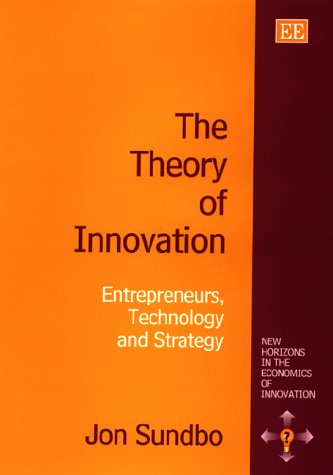New Horizons in the Economics of Innovation
2 total works
The book begins by discussing what innovation is and how innovation processes are to be understood within the historical perspective of long wave theory. Jon Sundbo then investigates the contribution of each of the following three paradigms, their inter-relationships and implications at the micro level. He considers entrepreneurs as individuals who have implemented or gained independence through their ideas. Historically, these would be the founders of enterprises, while the modern counterparts may be in companies that already exist. Secondly he addresses technology as a determinant of innovation, emphasizing the relations technology has with organizational and social factors. Thirdly, the author looks at strategic behaviour and the ability to recognize market opportunities and management processes for business strategies. Finally, he discusses the possibility of the three paradigms merging, how they differentiate and how they may be used in future innovation research.
This important book will be essential reading for academics interested in innovation, technology and industrial organization.
The fundamental concept of this theory is understanding innovation processes in the context of strategy. The author regards strategy as both an interpretation of environmental developments and an instrument for managing the innovation process. The book takes an evolutionary perspective and combines an 'out-in' approach (the market situation determines innovations) with an 'in-out' approach (internal organizational processes and entrepreneurship determine innovations). In both cases the implementation of strategy is closely studied and its role as a social process within the firm is emphasised. Significantly, the author combines economic and sociological factors and presents a series of models of the innovation process which are based on empirical studies. The book concludes with a model of macro-innovation factors.
Presenting an original theory of innovation within a strategic paradigm, this book will be required reading for all students and academics of economics and business, as well as management consultants and those interested in industrial organization.

